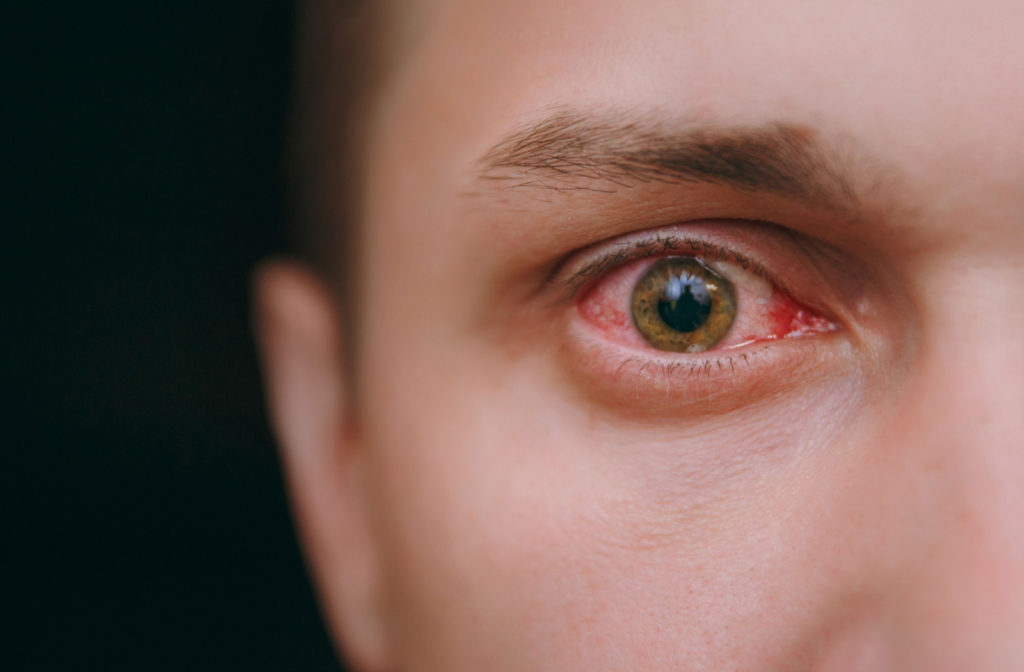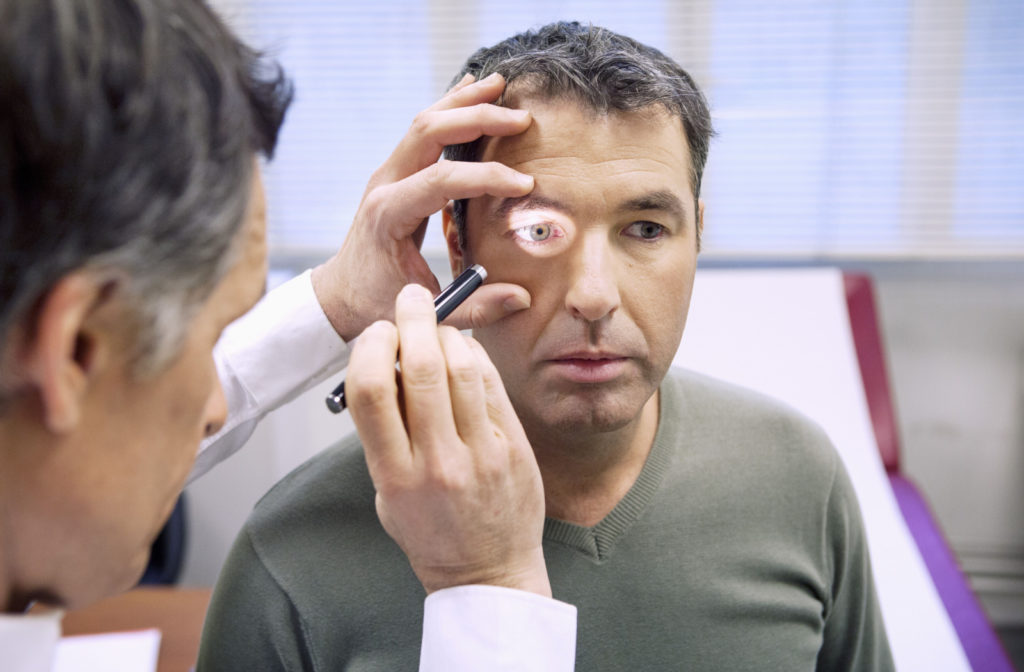Eyes: delicate yet resilient organs that play a pivotal role in our world experience. Your eyes are some of the most important features of your body, and taking care of them should be a top priority.
Unfortunately, accidents happen, and eye emergencies can occur unexpectedly. An eye emergency is any sudden and unexpected event that compromises your vision or causes pain or bleeding in your eyes. Anything from a foreign object in your eye to a chemical splash can constitute an eye emergency.
Did you know that you can see your optometrist for an eye emergency? You don’t have to go to the ER unless your optometrist is closed. Emergency rooms don’t always have the right instruments for examining eyes, but your optometrist does. They also have specialized knowledge of your eye structure, meaning they can offer quicker, more accurate care than an ER could.
Common Eye Emergencies
Eye emergencies can occur suddenly and require immediate medical attention to prevent vision loss or other complications. If you experience any of these common eye emergencies, follow these first aid procedures.
Chemical Contact
Our eyes are extremely sensitive. Anything that gets inside them can cause irritation and possible injury. If you get chemicals in your eyes, immediately rinse them out. Flush your eye for at least 15 minutes with cool, clean water.
Even if your eyes start to feel better after a few minutes, it is critical that you flush for the full 15 minutes so all traces of the chemical have been washed away. Any chemical traces that remain can cause long-term damage.
Corneal Abrasion
The cornea is the transparent structure that covers your iris and pupil on the outer surface of your eye. Like other parts of your eye, it’s delicate and easily damaged. A scrape or trauma to the cornea can expose it to infection.
Do not rub your eye if you have a corneal abrasion. This can aggravate the condition by shifting the debris and causing additional harm. Instead, gently wash your eye with clean, cool water to remove any debris before seeking immediate professional medical assistance.
Foreign Object
If you have an object in your eye, avoid touching or trying to remove it because it may cause further harm.
Avoid rubbing your eye if there is a loose object stuck between your eyelid and your eye or sitting on the surface of your eye. Instead, rinse your eye with clean, cool water to dislodge it. Seek medical assistance once the object in question has been removed.
Attempting to remove the object with your fingers or tweezers may result in more injury. If you can’t remove the object by washing your eye, get medical attention promptly.
Red Eyes

There are numerous causes of red or bloodshot eyes, and your optometrist can diagnose it. One common cause is conjunctivitis (pink eye)—inflammation caused by allergic, bacterial, or viral factors.
Red eyes can be caused by environmental factors like dust or smoke or as an unwelcome side effect of an underlying eye problem like corneal ulcers.
Sudden Flashes & Floaters
Have you ever been bothered by an eye floater, a squiggly shadow that darts away when you try to look at it? In most cases, they’re perfectly normal. However, you should speak with your eye doctor if you see a sudden influx of floaters, especially if they’re accompanied by unexpected flashes of light in your vision.
These signs could point to vitreous separation, which can lead to retinal detachment. Contact your eye doctor for an emergency eye care assessment to check if your eye floaters are a warning sign of a bigger problem.
Should You See Your Eye Doctor or Go to the ER?
If you experience an eye emergency during your eye doctor’s regular business hours, then your first step should be to call their office and schedule an immediate appointment.
Eye doctors are trained to handle various eye emergencies, including injury, infection, and vision loss. Your eye doctor has the appropriate equipment to handle eye-related emergencies better than a hospital, and you can be seen sooner by your eye doctor than in the ER. Your optometrist can quickly diagnose the problem and provide the necessary treatment.
If it’s outside regular business hours, or if you experience eye issues in conjunction with other serious health concerns, such as head trauma, then go to the hospital.
Protecting an Injured Eye
If you sustain an eye injury, avoid rubbing, touching, or putting pressure on your eye. Doing so can further damage your eye or push the foreign object deeper into your eye.
Instead, you should try to keep your eye as still as possible and use a protective eye patch or shield to prevent further harm as you travel to your eye clinic.
Navigating Eye Emergencies with Care
An eye emergency can be scary and unexpected, but knowing when to seek treatment and how to protect your eye is essential. You should always take eye discomfort seriously and seek prompt medical attention when necessary. Remember that your eye doctor at Queensway Optometric Centre is there to help treat your eye emergency during regular business hours. Your eye doctor is equipped to handle many eye emergencies. The key is to act swiftly and judiciously to preserve your vision. Learn more by contacting us today.


